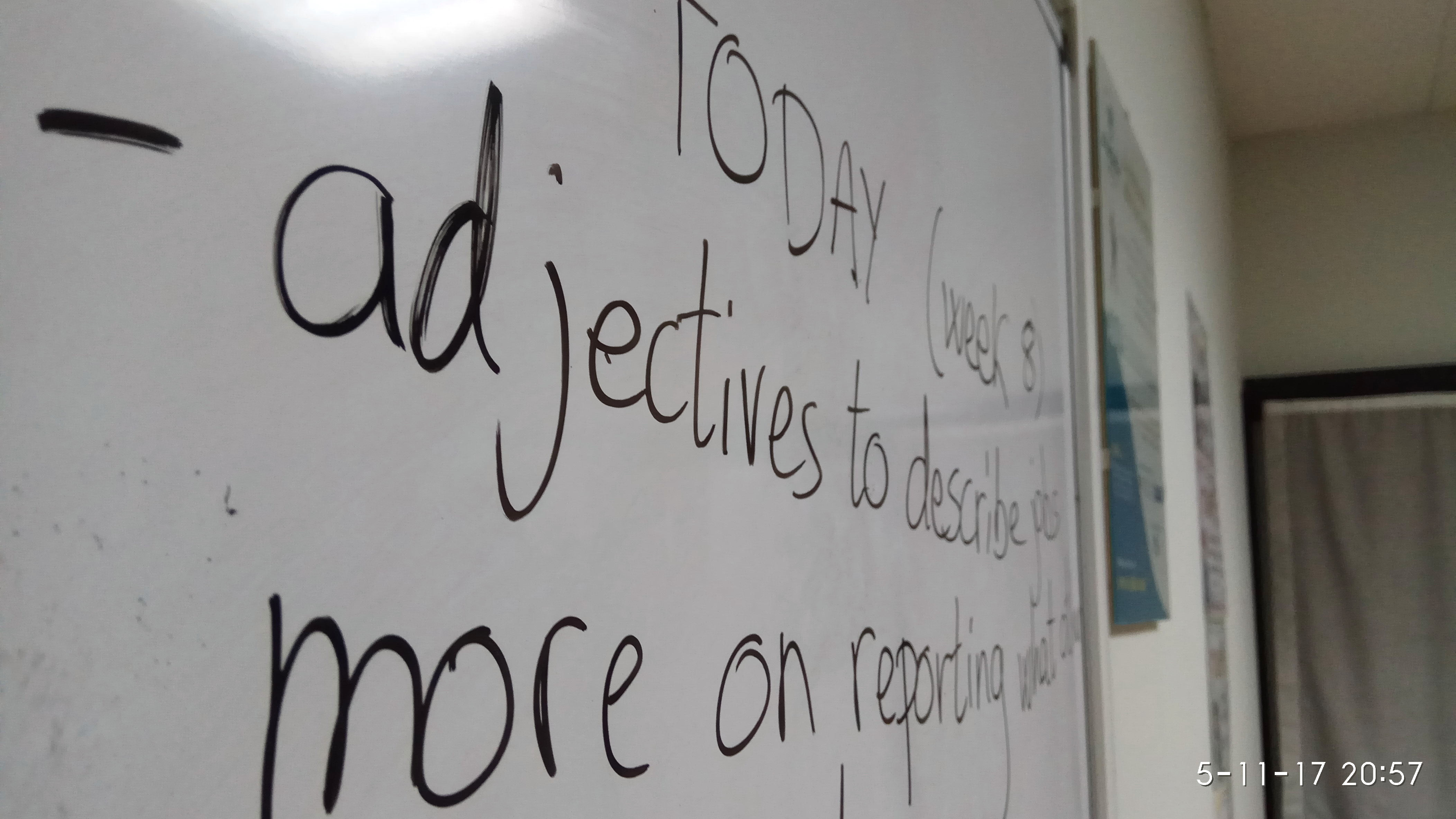I don’t know if this word even exists in ELT, it’s probably called ‘self-reflection’ or something similar. Terminology aside, this is what I’ve tried to do more consistently in the last few months: consciously noticing and if possible reflecting on the on-the-spot choices I make as a teacher in the classroom.
When and how
I generally do this in the classroom, or right after my lesson while driving back to school. As soon as I realise I’ve just made a off-the-plan choice (interrupting an activity, clarifying a language point, completely discarding the plan to do something different…), I try to consider what SLA beliefs lie behind my choices, and what aspects of my teaching I can improve.
What I’ve learned so far from self-observation:
- Sometimes using L1, especially with very low levels, can be of great help. It avoids frustration and helps get the message across in no time. However, I have to choose very carefully my L1 moments in the classroom, as I can end up overusing it or — worse — having the learners to totally rely on translation for meaning.
- The ‘feedback sandwich‘ is a great way of helping students self-correct. I have tried it once by chance, and have been using it ever since if and when needed. Here is what I do: in the case learners are consistently making one or more repeated mistakes using the target language, I interrupt the activity they are doing, write on board some of the sentences I heard, elicit correction and, once I’m happy that everyone has understood the correction, I ask learners to continue with the activity, paying specific attention to this language point. What I get is a freer practice activity with a specific focus on form, plenty of opportunities to use and to explore the TL and happy students who feel they have achieved something in the lesson.
- I speak WAAAAAY too much, especially when giving instructions at higher levels, and I NEVER use ICQs. DoSes and colleagues have told me time and again to write down instructions and ICQs on the plan, to get myself into the habit. But it would take me forever! And I can’t help but feel ICQs make my adult students feel I am treating them like idiots. I know exactly the sound theory behind ICQs, but when I say: ‘So let’s work in pairs…. Mario, who are you working with now?’ I feel awkward, and my students do too. I don’t know how to get over this feeling.
- I tend to believe that learners need to actively discover and process the new language before they are able to use it actively. I also believe learners need plenty of exposure before they can productively use an item of language (a certain structure or lexis) naturally.
Do you systematically reflect on your teaching? If so, what have you discovered about yourself as a teacher?

Hi Giulia and thank you for the post!
I love self-reflection and often analyse my on-spot choices, and the first thing hit me was that I have asked ZERO ICQs since I finished my CELTA! I guess it happens to many CELTA graduates… would be interesting to gather some statistical data 😀 I always say to myself ‘use ICQs at least with your lower levels’ and still, I forget. I ask ‘Do you understand?’ sometimes though but it hardly works with Japanese students ‘cos they always answer yes even when it’s not true XD I guess I have to do something about it this semester since some of my lower levels I taught last semester needed ICQs at some point (but didn’t get it ‘cos I failed to ask them)… oh well.
Hi, I have the same problem and I’m now focusing on writing basic numbered instructions on the board, the act of writing them focuses me on how much instruction and how clear it is…
Thanks Patricia, I’ll try that! ????
Hello Giulia,
Interesting post! I’m glad you shared your reflections with us on this blog.
I am curious how much is WAAY too much and it is exactly you’re saying?..)) and I also wonder if you truly believe ICQ are important…
Cheers from Tokyo!
Anna
Hi Anna, thank you for replying. Way too much means that sometimes I can hear myself speaking, and I know I should stop but I can’t because I haven’t finished explaining what I wanted to explain. 😀 I don’t know if this makes sense, but if you heard me give instructions to higher-level student, you’d know what I mean.
As for ICQs, I understand their value in giving Ss a chance to talk while helping the teacher make sure everybody has understood. So the theory is all nice and clear. But in practice, I don’t feel they work for me.
I have struggled with ICQs. The best tip I have ever had was number instructions. e.g 1. Talk to your partner about films.
2. Find common preferences.
3. Choose a film from the list.
It’s so good!
I’ll try that, thanks for the tip Marc!